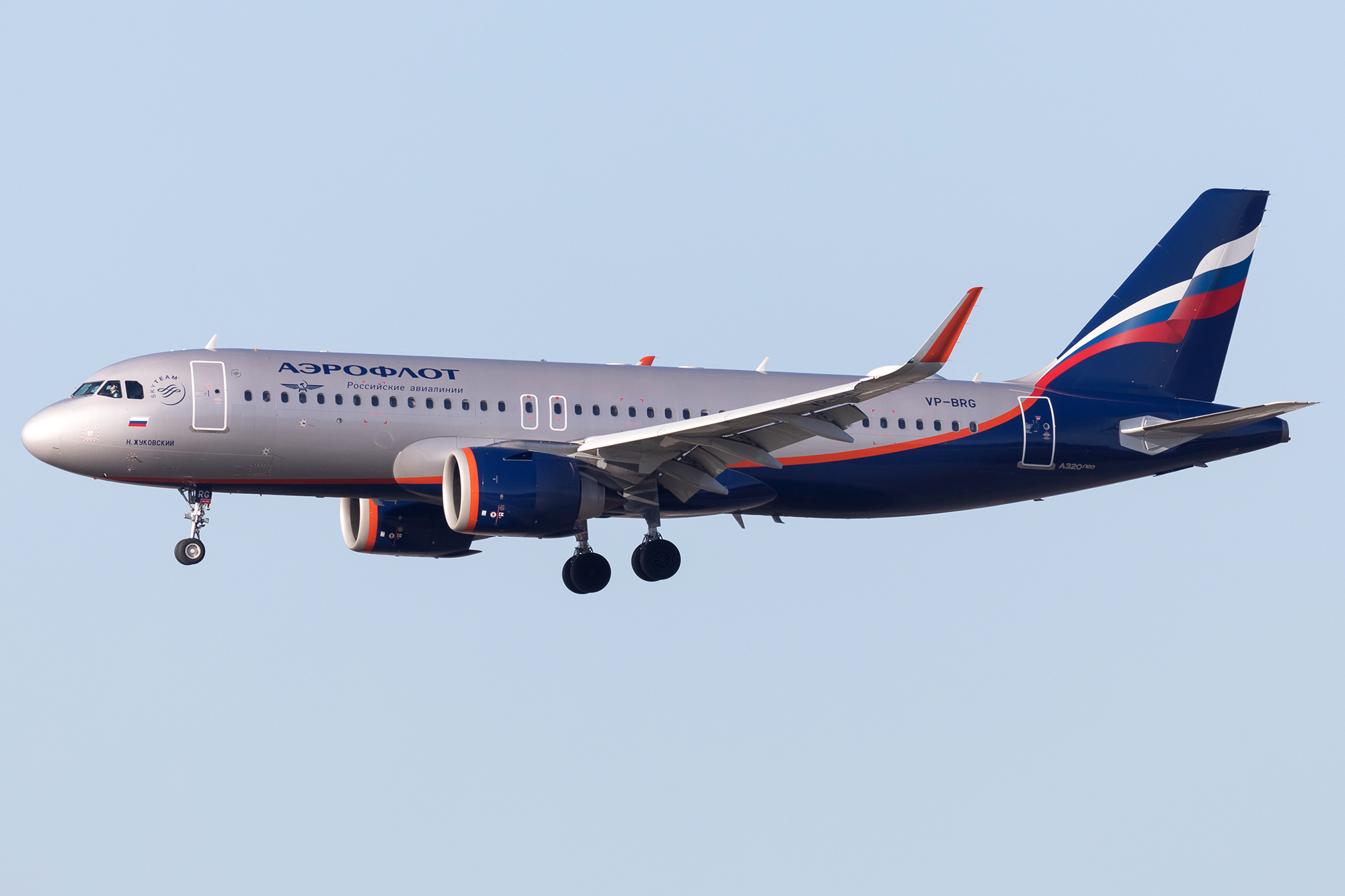President Vladimir Putin on Monday signed a law as part of anti-sanctions measures that will allow Russian airlines to register planes leased from foreign companies in Russia, where they will be issued local certificates of airworthiness, according to a Kremlin statement.
The bill will allow Russian airlines to keep their foreign-leased planes and operate them on domestic routes, while making it harder for foreign companies to reclaim them without Russian government approval.
The sanctions imposed by the United States and Europe on Russia force the leasing companies to recover all the planes they have rented from Russian airlines before the end of the month.
Western aircraft manufacturers such as Airbus and Boeing have already cut off Russian airlines’ access to the spare parts they need to maintain and safely fly their planes. Russian airlines operate 305 Airbus and 332 Boeing planes, according to data from aviation analytics firm Cirium. Russia also has 83 regional jets from Western manufacturers such as Bombardier, Embraer and ATR. Only 144 aircraft in the active fleets of Russian airlines were built in Russia.
Cirium data shows that 85% of those foreign-made planes are owned by leasing companies, putting their combined value at $12.4 billion.
This was a successful attack on Russian vehicles, according to the Ukrainian Air Force.
It is not clear how the leasing companies have been able to take possession of these planes while they remain on Russian soil. Additional sanctions that bar Russian planes from flying to most other countries have restricted its airline industry to essentially domestic flights.
The leasing companies have not responded to a request for comment on Russia’s actions, and it is unclear whether they will even want to take back those planes. The planes will not have access to spare parts and will not have valid airworthiness certificates that would be accepted by Western airlines.
“These aircraft will no longer be supported by parts and maintenance,” said Richard Aboulafia, CEO of AeroDynamic Advisory. “It’s a real problem if they lose their airworthiness certificates, which can happen if proper records aren’t kept, or especially if they cannibalized for parts.”
A crushing blow to the Russian economy
Losing access to 85% of its foreign-made planes would be a crippling blow to the country’s economy.
Russia is the world’s largest nation by land mass, more than twice the size of the continental United States. It needs a viable aviation sector to keep its economy going, said Charles Lichfield, deputy director of the Center for Geoeconomics at the Atlantic Council, an international think tank.
“It is an important part of the Russian economy,” he said. “They want a basic domestic industry to continue to exist. The Russians don’t fly as much as the Americans. They don’t fly to Siberia on vacation.”
Its airline industry is a crucial link for companies, not only for international flights, but also for domestic service in its energy sector, due to the need to transport engineers, other workers and equipment to and from its distant oil fields.
“Aviation is an incredible enabler of economic growth, both domestically and internationally,” said Robert Mann, airline analyst and consultant. “Without it, you go back to an almost agrarian economy, trying to run a rail network.”
Russia doesn’t need all the planes it is seizing, as the hit to its economy from sanctions will greatly reduce the need for air travel, said Betsy Snyder, a credit analyst who covers aircraft leasing companies at Standard & Poor’s.
“The Russian economy is sinking,” he said. “No one will enter or leave Russia, Russian citizens are losing their money, so they have no money to travel in the future. It could be that [las aerolíneas] were a much smaller business.
That raises the possibility that many of the seized planes could be cannibalized for parts.
“If you don’t have the authority to make parts, you shouldn’t be doing it yourself,” Mann said. “You don’t know what standards have been used. Have you got the internals right? When you put it in the turbine section of an engine, will it behave as designed?”
Did Russia ask China for military help?
Mann said that when a part reaches the end of its designed usefulness, known as “green time,” an airline must choose between flying parts that should have been replaced for safety reasons or stealing parts from other planes.
“You can go through that process as long as you have planes with green time,” he said. “As you run out of planes, your network gets smaller and you can fly fewer hours each day, until you have no airline.”
In a year, Russia will no longer have any kind of viable airline industry,” Aboulafia said, adding that its airline industry could soon find itself somewhere between the heavily sanctioned industries of Iran and North Korea.
Can a country as big as Russia live without a modern and viable airline industry? “It’s a thesis that has never been put to the test,” Aboulafia said. “But it’s about to be.”

